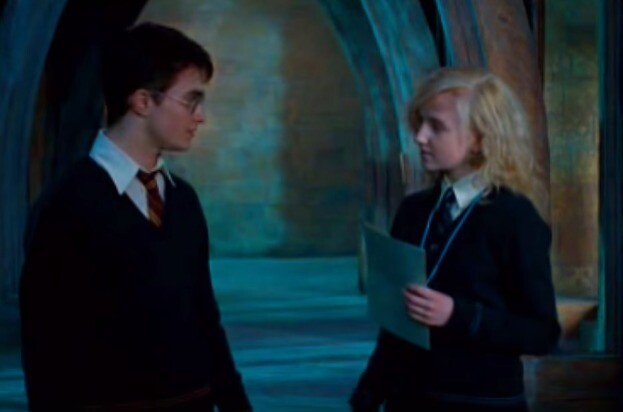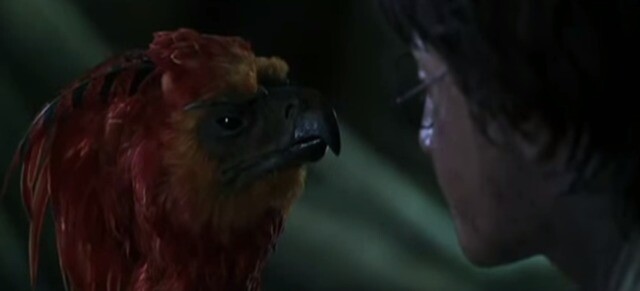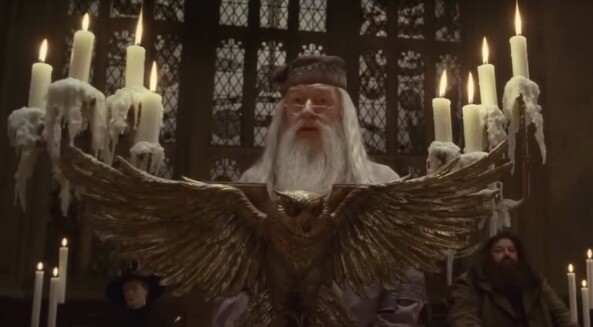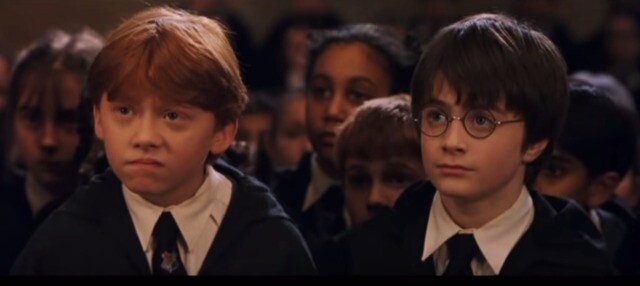On the surface, the phenomenon that is J.K. Rowling’s Harry Potter series may appear to simply be a well-crafted narrative about a young wizard destined to save his magical world from evil.
But there’s more to the story.
While most people love the series, Mormons seem to really love the series—likely due, at least in part, to perceived parallels between the plots of Potter and another bestseller: the Bible.
► You'll also like: If Harry Potter Was a Mormon: MormonProbs at Hogwarts
Rowling herself is clear—the similarities between her work and the Bible were intentional.
“I go to church,” she said. “To me, [the religious parallel] has always been obvious.”
Christian analogs in fantasy novels are nothing new—after all, Aslan and Gandalf were dreamt up before Rowling was even born. That said, Harry Potter is proof that even in an increasingly secular world, religious values and themes can still reign supreme.
WARNING: The following list contains spoilers. If you have not read the books or watched the movies or you have been stranded on a remote island for the last several years and are unaware how Harry Potter ends, enter at your own risk.
Protection from evil through a loving sacrifice

“If there is one thing Voldemort cannot understand, it is love.”
So responded Hogwarts headmaster Albus Dumbledore, when 11-year-old Harry questioned why the most evil wizard of all time could not bear to touch him. Dumbledore went on to explain that when Voldemort attacked the Potter family in Harry’s infancy, Lily Potter died attempting to save her son. “[Voldemort] didn’t realize that love as powerful as your mother’s for you leaves its own mark . . . . To have been loved so deeply, even though the person who loved us is gone, will give us some protection forever,” said Dumbledore. “It was agony [for Voldemort] to touch a person marked by something so good.”
In an act of incomprehensible love, Jesus Christ died for us. This sacrifice provides the means whereby we all find an ultimate and lasting protection from evil. “There is no greater expression of love,” taught Elder M. Russell Ballard, “than the heroic atonement performed by the Son of God.” Satan’s inability to harm in the face of Christ’s willing, loving sacrifice serves to remind us that if there is one thing the adversary cannot understand, it is love.
A master of Death with power, love, and humility

Crucial to the plot of the final book is the fairy tale of the Deathly Hallows. In it, three clever brothers cheat Death and, as a reward, Death grants each of them an object of their desire. The first, desiring power, received a wand stronger than any in existence. The second, heartbroken by a woman deceased, received a stone that could resurrect those he loved. The third, humble and wise, received a cloak that would make him invisible from Death’s future visits. The legend in the story concludes that the three objects, or hallows, are indeed real and that anybody who comes to possess all three will effectively be a “Master of Death.”
Romans 6:9 reads, “Christ being raised from the dead dieth no more; death hath no more dominion over him.” In other words, death’s dominion over Christ was relinquished at the time of His resurrection—making Him a Master of not only His own death, but everyone else's. Christ’s sacrifice required matchless power, relentless love, and an unfathomable humility, and because of it, each of us can now echo the words of Paul: “O death, where is thy sting?”
The heart is more telling than outward appearances

If you’re familiar with Potter, you know that Harry doesn’t often receive help from the coolest kids in school. In fact, in most cases it’s the black sheep of the wizarding world—the impoverished Weasleys, the “mudblood” Hermione, the clumsy Neville, and the bizarre Luna—that come to his aid. To an outside observer, Harry’s entourage might appear to be a who’s who of magical misfits. But in reality, the greatest courage can come from those the world would consider the weakest among us. The once-cowardly Neville stared death in the face as he stood up to Voldemort. And strange Luna never seemed saner than during her faithful declaration that she’d see her deceased mother again, proudly voicing her belief that the spirits of our dead are simply beyond a veil, “lurking out of sight.”
God works in much the same way. He’s not a respecter of persons—He could truly not care less about how our earthly accomplishments compare to others’. Whatever talent or ability we have, He gave to us. When the Old Testament prophet Samuel was tasked with selecting Israel’s new king, he thought any one of Jesse’s impressive sons would do fine except for the youngest, the smallest, the weakest—a boy named David. But God had different plans. “Look not on his countenance, or on the height of his stature,” He told Samuel, “for the Lord seeth not as man seeth; for man looketh on the outward appearance, but the Lord looketh on the heart.”
A comforter and strengthener (in the form of a bird)

Harry’s mentor, the powerful Albus Dumbledore, had a pet—a phoenix named Fawkes—who often played a part in the story’s proceedings. When confronted with an evil wizard and his giant snake, Harry received unexpected and needed assistance from Fawkes, who provided him with a sword, rekindled his courage, and healed his wounds. Four years later, at Dumbledore’s funeral, Fawkes provided comfort to the mourners with a song which brought Dumbledore to fond remembrance in their minds. “And Harry felt . . . that the music was inside him, not without.”
In our efforts to live the gospel and combat evil influences, we are each granted a comforter and strengthener. The influence of the Holy Ghost (who is scripturally referred to as a dove) can heal our wounds, lift our spirits, and, as the phoenix’s song did, direct our minds toward the One who sent it. The Holy Ghost “shall not speak of Himself,” instead testifying to us that Jesus is the Christ in a way that is quiet, sacred, and internal.
Conflict between right and easy

Though vanquished for over a decade, the evil Voldemort eventually returned to threaten the existence of the entire wizarding world. In the aftermath of his return, Dumbledore addressed the Hogwarts student body at an end-of-year feast. Contrary to his usual light and sentimental tone during such remarks, the headmaster's message to his pupils was one of warning. “Soon,” he warned, “we must all face the choice between what is right and what is easy.”
Even though “wrong” is the opposite of “right,” the teachings of Jesus make it clear that “easy” could readily be used in its place. Matthew 7:13 reads, “Enter ye in at the strait gate: for wide is the gate, and broad is the way, that leadeth to destruction, and many there be which go in thereat.” Christ was adamant that His path, though rewarding, was not an easy one to walk—but a beautiful message of both the gospel and Harry Potter is that even though the right road is almost always the one less traveled, “help will always be given . . . to those who ask for it.”






